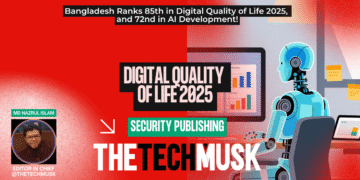Qualcomm says a new generation of Windows on Snapdragon laptops is changing how mobile professionals work, claiming multi-day battery life, quieter thermals, and faster on-device AI as enterprises push beyond the office.
In an interview, Zeeshan Sabir, Qualcomm’s Vice President of Information Technology, said the company’s own workforce—roughly 75% engineers—has seen a shift in day-to-day habits. “Walk into any Qualcomm conference room today, and you’ll notice something different: people carrying laptops without power adapters,” Sabir said, contrasting the experience with legacy x86 systems that prompted users to stay near outlets.
Sabir said past complaints included blue-screen crashes when unplugged, weekend battery drain despite full charges, and rapid runtime losses during programming workloads. He argues the Snapdragon platform’s integrated NPU (neural processing unit) offloads AI tasks—ranging from noise suppression on video calls to LLM-assisted coding—so devices sustain performance without spinning up fans or burning through batteries.
Qualcomm also points to software readiness as a factor. According to Sabir, engineering, sales and program management teams have worked with thousands of developers to ship Arm-native versions of popular Windows apps and to optimize for the NPU, aiming to preserve familiar workflows while improving efficiency on battery power.
While rival processors can match performance when plugged in, Sabir contends they fall behind off the wall—saying some x86 laptops drop as much as 45% on battery, a claim he frames as a key differentiator for field work, travel and events. “A laptop is a four-year investment,” he added. “LLMs are only going to keep growing, and we’ll need reliable devices whose processing doesn’t hurt the user experience—even on the go.”
Qualcomm positions Windows on Snapdragon not just as a spec bump, but as a behavioral shift: less outlet hunting in airports and conference halls, fewer workload compromises away from a desk, and a move toward AI-accelerated workflows that run efficiently offline. If adoption continues, Sabir suggests the scramble for a spare socket could soon feel as dated as searching for a pay phone.























